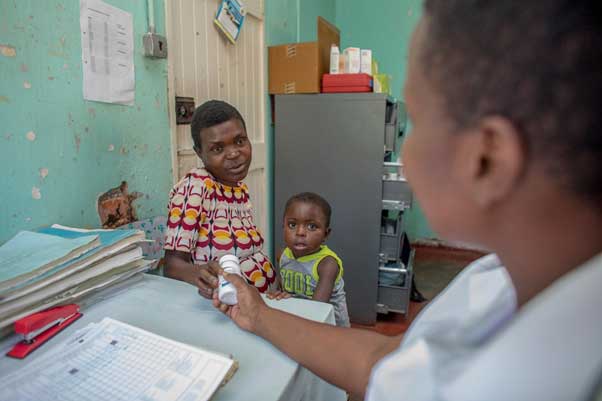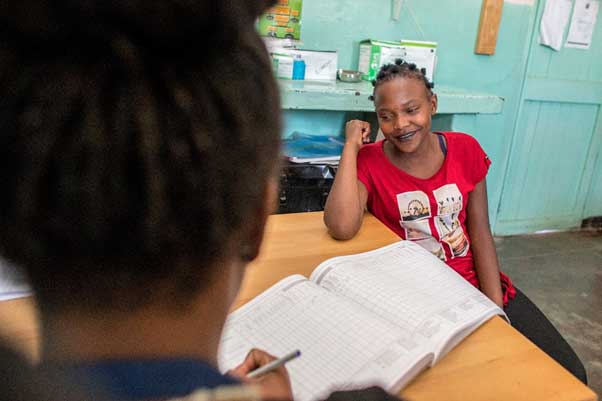[ad_1]

BRASILIA, Brazil, Jun 05 (IPS) – The COVID-19 disaster has shone a light-weight on the hazard of pandemics; social crises have shone a light-weight on the hazard of inequalities. And the fact is that outbreaks turn out to be the pandemics they do due to inequality. The excellent news is that each might be overcome – if they’re confronted as one.
Scientific and medical breakthroughs within the therapy and prevention of HIV ought to have introduced us to the purpose of ending AIDS. Tragically, nonetheless, though the variety of new HIV infections is falling quick in lots of international locations, it’s nonetheless rising in dozens of nations and the aim of ending AIDS by 2030 is in peril.
The explanation: financial and social inequalities inside international locations and between them enhance folks’s danger of buying illness and block entry to life-saving companies.
Letting inequality develop is driving pandemics and prolonging emergencies that drain economies and well being techniques. This makes all of us weak to the following pandemic, whereas inserting complete international locations and communities of individuals in hurt’s means.
In an excessive amount of of the world we see coverage approaches which depart inequalities to widen, and even, in some circumstances, intentionally exacerbate inequalities.
On a worldwide stage when rich international locations shortly make investments billions in their very own medical and social response, whereas leaving different international locations so burdened by debt they don’t have any fiscal house to take action, that undermines the world’s capability to battle AIDS and pandemics.
Throughout COVID-19 whereas rich international locations poured in billions to guard their economies, scale back financial and social hardship and battle the pandemic, nearly half of all creating international locations reduce well being spending and about 70% reduce spending on training.

Viruses don’t respect borders, so when the vaccines, medicine, and exams meant to cease these viruses go to highly effective international locations in extra, whereas different international locations have little or nothing and are held again from producing medicines themselves, that perpetuates pandemics in every single place.
Equally, social and financial situations that perpetuate pandemics in low- and middle-income international locations current a worldwide risk. A lot as with COVID-19 the identical has occurred with the MPox virus.
Lately twice as many individuals have died of MPox within the Democratic Republic of Congo as the complete remainder of the world mixed however, as of right now, zero vaccines for MPox had been delivered to the DRC.
Social and authorized determinants that make folks weak to pandemics have to be tackled. Globally nearly 5,000 younger girls and ladies turn out to be contaminated with HIV each week. Dismantling limitations to sexual and reproductive well being and rights companies, investing in ladies’ training, and combating gender-based violence to take away gender inequity is essential to ending the AIDS pandemic and defending girls’s well being.
Legal guidelines that criminalize and marginalize LGBT communities, intercourse staff and individuals who use medicine weaken public well being approaches and lengthen pandemics resembling HIV. In sub-Saharan African international locations the place identical intercourse relations are criminalized, HIV prevalence is 5 instances larger amongst homosexual males and males who’ve intercourse with males than in international locations the place identical intercourse relations aren’t criminalized.
Even inside international locations which might be making substantial progress in opposition to HIV, advances will not be shared equally. Right here in Brazil for instance, HIV infections are falling dramatically among the many white inhabitants as entry to therapy is widened and new prevention instruments resembling PrEP are rolled out.
That exhibits what might be achieved; however HIV infections among the many black inhabitants in Brazil are nonetheless on the rise. The same story runs in the USA the place homosexual white individuals are extra more likely to have entry to good well being care than homosexual black folks.
We emphasize that it isn’t solely entry to well being care that perpetuates these inequalities, however the social determinants that enhance the danger of an infection.
To beat inequalities in accessing important companies, communities have to be empowered to demand their rights. The AIDS motion is without doubt one of the greatest examples of how teams of individuals experiencing intersecting inequalities can unite to beat them, resulting in thousands and thousands of lives being saved.
Successive Commissions on Social Determinants of Well being have introduced collectively proof on how the situations during which individuals are born, develop, reside, work and age are highly effective influences on well being fairness.
To carry collectively these two strands of information over the approaching months we can be convening international consultants from academia, authorities, civil society, worldwide improvement and the inventive arts to construct a World Council to advance evidence-based options to the inequalities which drive AIDS and different pandemics.
The council will unite consultants from disparate fields of economics, epidemiology, legislation, and politics and can embody ministers, mayors, and former heads of state, researchers and clinicians, well being safety consultants, neighborhood leaders and human rights activists.
The work of the World Council will harness important proof for policymakers. It is going to elevate political consideration to the necessity for motion. Most crucially, it would assist equip the advocacy of the frontline communities combating for his or her lives, with what they should shift insurance policies and energy.
Appropriately, the World Council is launching in Brazil. While Brazil has exemplified the challenges of intersecting inequalities, Brazil’s social actions have been pioneers in confronting them, and Brazil’s new authorities below President Lula has dedicated to sort out inequalities in Brazil and worldwide.
To battle tomorrow’s pandemics, we’d like inequality-busting approaches to right now’s pandemics. The world’s leaders now face a transparent selection: stand by while the hazards mount or come collectively to sort out inequalities for a world that’s not solely fairer, however safer too.
Winnie Byanyima is the Govt Director of UNAIDS and an Below-Secretary-Common of the United Nations. Earlier than becoming a member of UNAIDS, she served as Govt Director of Oxfam Worldwide, a confederation of 20 civil society organizations working in additional than 90 international locations worldwide, empowering folks to create a future that’s safe, simply and free from poverty.
Sir Michael Marmot is Professor of Epidemiology at College Faculty London (UCL), Director of the UCL Institute of Well being Fairness, and Previous President of the World Medical Affiliation.
They’ll launch the World Council on Inequalities, HIV and pandemics in Brazil on June 5. The authors are founder members of the World Council on Inequality, AIDS and Pandemics and are in Brazil for its announcement.
IPS UN Bureau
© Inter Press Service (2023) — All Rights ReservedOriginal source: Inter Press Service
[ad_2]

